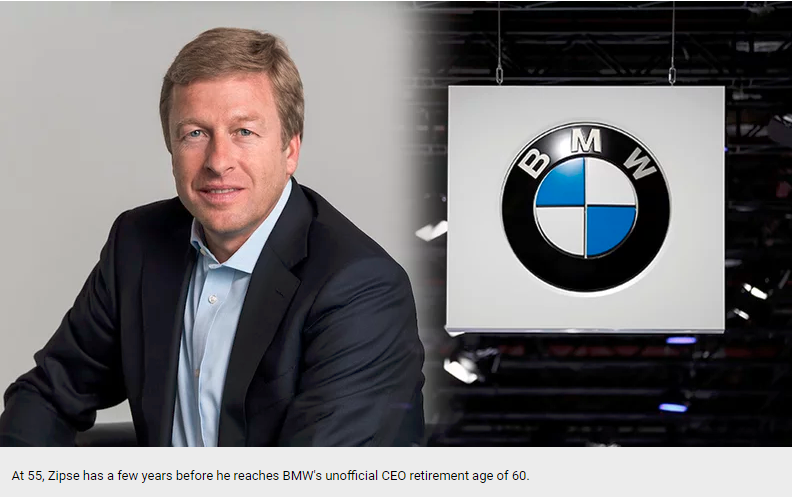
Zipse was said to be in a horserace for the CEO job with another strong contender, BMW's 59-year-old board member for research Klaus Froehlich.
At 55, Zipse has a few years before he reaches BMW's unofficial CEO retirement age of 60.
BMW also squandered an early lead in the development of electric vehicles, allowing established competitors such as Volkswagen Group and upstarts such as Tesla Inc. to overtake it in market and mind share.
"Zipse will certainly be tasked with increasing BMW's share in the EV market, and another area of focus may be finding the right balance with the number of models within the portfolio," said Jeff Schuster, president of global forecasting with LMC Automotive. "BMW has taken a fragmentation approach in the past, with some models overlapping others within the showroom."
Zipse, a mechanical engineer by training, swiftly ascended BMW's corporate ladder since joining in 1991 as a trainee. Over the past three decades, the executive was head of brand and product strategies before becoming board member for production.
Under Zipse's watch, BMW's efficient production network, which he expanded in Hungary, China and the U.S., has helped the company deliver industry-leading profit margins despite its relatively small scale.
Zipse's production background should help the executive in his new role, Schuster said. "But he may not have as strong of a technology background as other choices," the analyst noted.
“With Oliver Zipse, a decisive strategic and analytical leader will” become CEO of BMW, Chairman Norbert Reithofer said in a statement. “He will provide the BMW Group with fresh momentum in shaping the mobility of the future.”
Traditional track
By naming Zipse, BMW is continuing a tradition of plucking leaders well-versed in the detailed interplay required to assemble premium cars at scale. Reithofer, a former CEO, also was production chief, as was Krueger.
The question is whether the skills needed to run high-precision manufacturing operations will help Zipse as changing technology and customer habits rewrite automotive industry rule books. BMW is built around the allure of autobahn driving, but as transport becomes more electric and alternatives to car ownership multiply, the future is fraught with challenges.
Under Krueger, BMW largely stuck to the usual methods of boosting sales with new models such as the full-size X7 crossover and the 8-series luxury coupe -- gas guzzlers that make it tougher to meet tightening environmental regulations, even if they’re sought after by consumers.
But even with BMW's cautious approach toward EVs and AVs, spending on vehicle development contributed to eroding profitability.
Board tensions
In the first quarter, BMW’s automotive division posted its first loss in a decade amid slumping car prices, fallout from trade tensions and legal provisions related to alleged collusion. In March, the company announced a 12 billion-euro ($13.5 billion) savings plan and said it would hold headcount steady this year.
Unlike many of his counterparts on BMW’s management board, Zipse studied abroad, taking courses in computer science and mathematics at the University of Utah in the 1980s. He received a mechanical engineering degree from Technical University Darmstadt before joining BMW as a trainee in 1991.
One of Zipse’s key challenges will be uniting BMW’s fractious leadership. While the company pushed forward with deeper cooperation with rival Daimler in recent years, boardroom tension has slowed decision-making and were a factor in Krueger’s early departure.